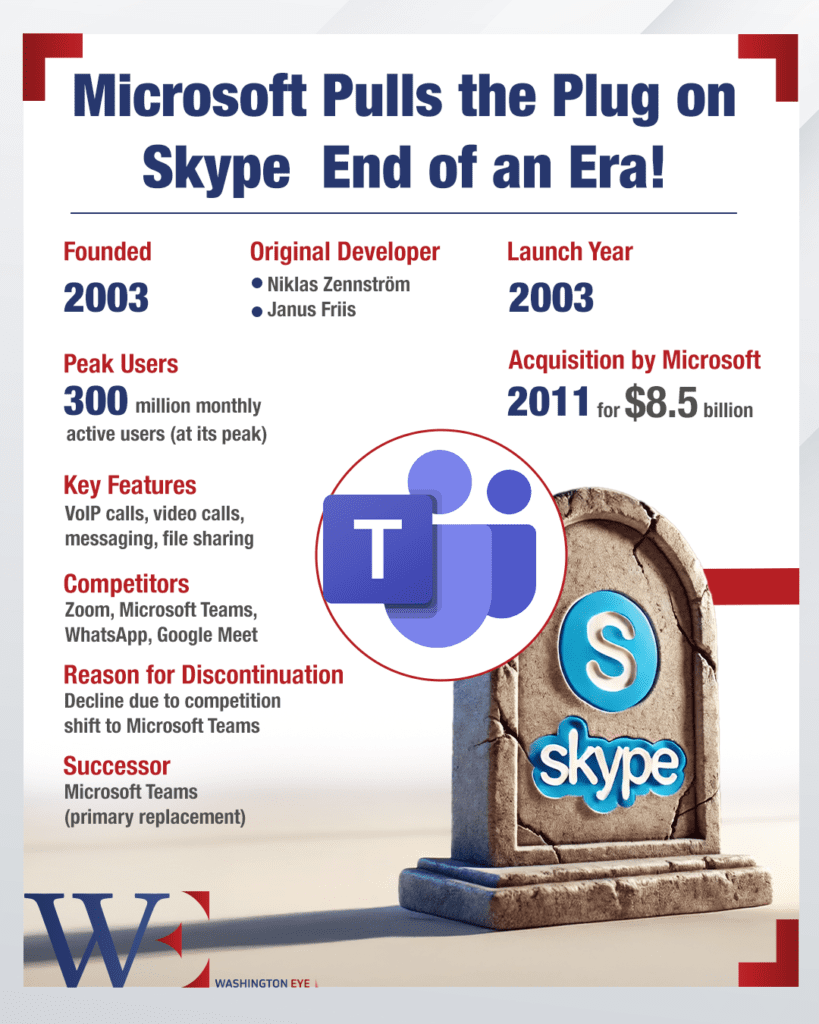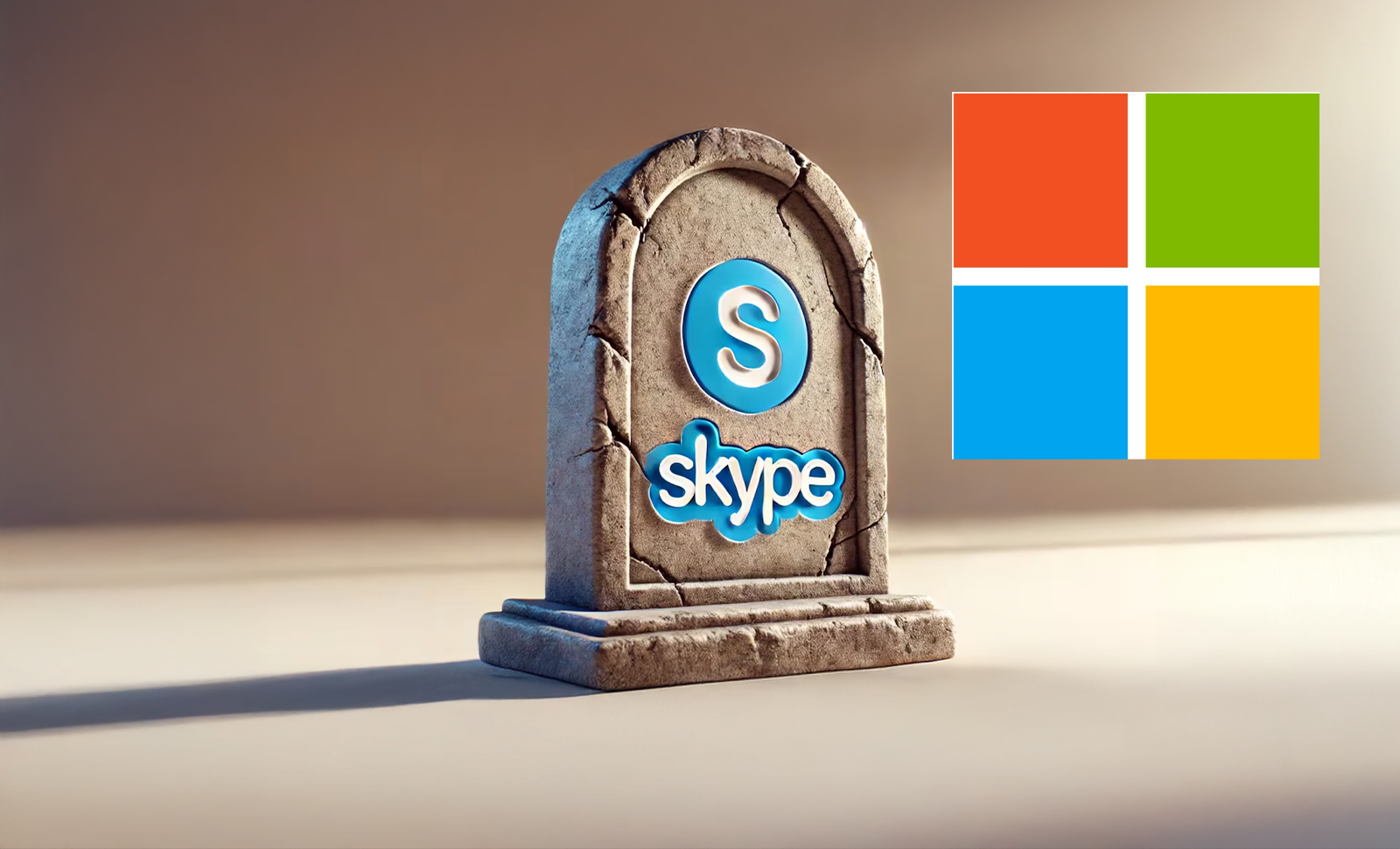In a significant shift within the digital communication landscape, Microsoft has announced the permanent shutdown of Skype, its pioneering internet-based calling and video service, effective May 5, 2025. This decision marks the end of an era for a platform that once redefined global communication.
Launched in 2003 by a team of developers from Sweden, Denmark, and Estonia, Skype revolutionized the way people connected by offering free voice and video calls over the internet. Its user-friendly interface and cost-effective solutions quickly garnered a massive user base, disrupting traditional telecommunication models.
By 2008, Skype boasted approximately 405 million users, highlighting its global appeal and widespread adoption. Recognizing the platform’s potential, Microsoft acquired Skype in 2011 for $8.5 billion, aiming to integrate its services into the Microsoft ecosystem and enhance its communication offerings.
Despite these efforts, Skype faced challenges in maintaining its dominance, especially with the emergence of competitors and evolving user preferences.
The Emergence of Competitors
The digital communication arena witnessed the rise of several competitors that offered innovative features and seamless user experiences. Platforms like Zoom, Google Meet, and Apple’s FaceTime introduced robust video conferencing solutions, while messaging apps such as WhatsApp and Slack provided integrated communication tools.
These platforms capitalized on the growing demand for versatile and reliable communication services, gradually overshadowing Skype’s prominence. The onset of the COVID-19 pandemic in 2020 dramatically increased the demand for remote communication tools.
While platforms like Zoom experienced exponential growth, Skype struggled to capture a significant share of the burgeoning market. Microsoft’s strategic focus shifted towards Teams, its collaboration platform introduced in 2017, which saw accelerated adoption due to its integration with Microsoft Office applications and features tailored for business and educational environments. In light of these developments, Microsoft has decided to retire Skype to streamline its communication services and concentrate on enhancing Teams.
Jeff Teper, President of Microsoft 365 Collaborative Apps & Platforms, emphasized that this move aims to simplify Microsoft’s offerings and better serve user needs. Starting in May 2025, Skype users will be encouraged to transition to Microsoft Teams, with the assurance that their existing contacts, chat histories, and call logs will seamlessly migrate to the new platform. Users can log into Teams using their current Skype credentials, ensuring continuity and ease of access. For those who choose not to migrate, Microsoft provides options to export their data before the shutdown date.
User Reactions and Market Implications
The announcement has elicited a range of responses from users and industry observers. Long-time users of Skype express nostalgia and a sense of loss, reminiscing about the platform’s role in connecting people across distances. Industry experts view this development as a strategic realignment by Microsoft to consolidate its resources and focus on platforms with greater growth potential.
Skype’s journey from a groundbreaking startup to a household name in digital communication reflects the rapid evolution of technology and user expectations. Its retirement signifies the end of a significant chapter in internet history. As Microsoft pivots towards Teams, the focus shifts to providing integrated and versatile communication solutions that cater to modern needs.
While Skype will be remembered for its contributions to making the world more connected, the future of digital communication continues to evolve.














